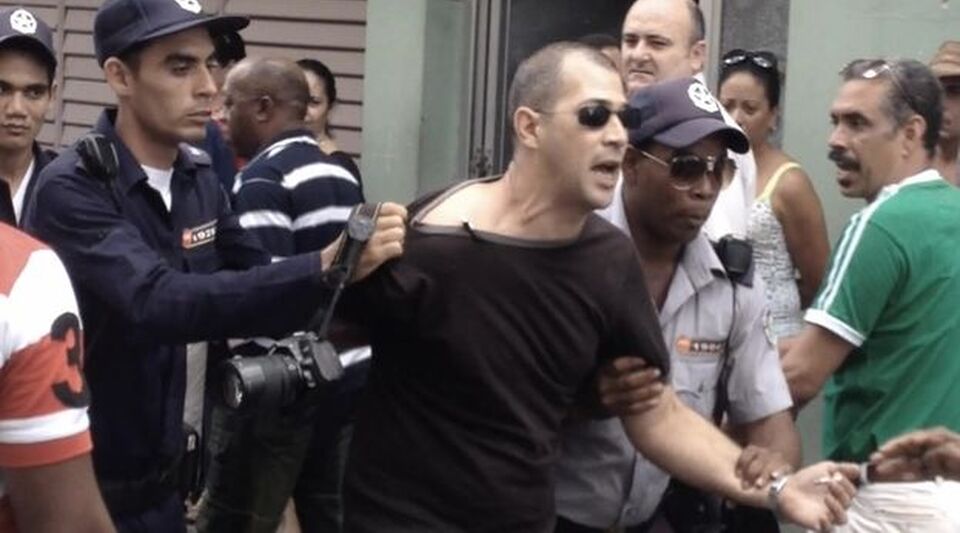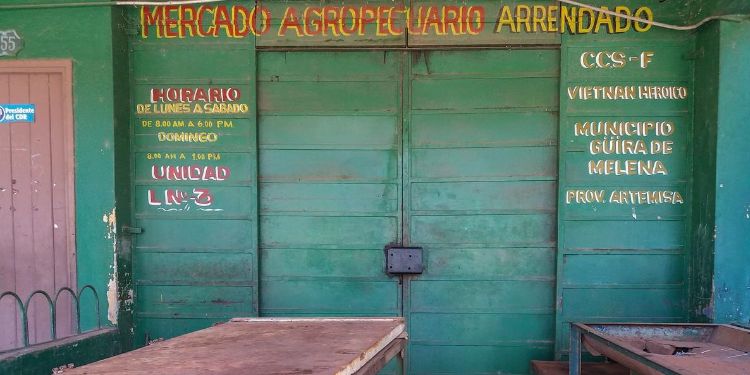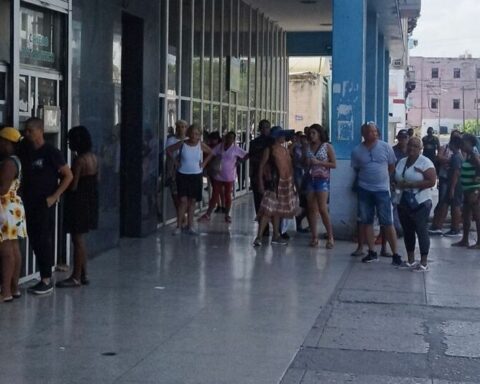The Cuban press suffers from “constant repression”, the “control of telecommunications” and is experiencing “the largest exodus in history,” according to a report approved this Sunday during the 78th General Assembly of the Inter-American Press Association (IAPA).
The document denounces that the island’s journalists are the object of constant “harassment” and “threats” by the government’s “repressive scaffolding against freedom of the press”, which in the last year has significantly increased the harassment against independent reporters, the dissemination of content on social networks and digital media not controlled by the Communist Party.
In many cases, this translates into police citations and, in the worst case scenario, imprisonment, according to IAPA.
The organization recalls that the Cuban journalist and activist Lázaro Yuri Valle Roca –detained since June 2021– was sentenced to 5 years in prison for the crimes of “ongoing enemy propaganda and resistance” and is being held despite his “serious state of health,” according to the association.
These sanctions will be reinforced, according to the organization, in the new Penal Code -approved last May- which will enter into force on December 1 and which severely penalizes the exercise of journalism outside the official media.
It “persecutes all aspects of journalistic work, punishes the author of any criticism of state officials with prison and guarantees impunity to the authorities.”
The new Penal Code -approved last May- will enter into force on December 1 and severely penalizes the exercise of journalism outside the official media
One of the penalties contemplated by the Code is 10 years in prison for “receipt, use and possession of funds from abroad”which would limit the financing of the media outside the state bubble to the maximum.
On the other hand, reporters who are not detained are subject to “police summons, a fence around their home, and an internet cutoff,” adds the IAPA.
House arrest without a court order “can last from a few hours to several weeks.” Similarly, the government pressures homeowners to evict their tenants when it comes to critical journalists, such as the photographer María Lucía Expósito.
Another form of repression, highlights the report, are the fines imposed on communicators. Ismario Rodríguez was fined 4,000 pesos for “illicit economic activity, justification for punishing those who do journalism without permission.”
It is a case similar to that of the journalist Camila Acosta -with a sanction of 1,000 pesos- for “public disorder”, “accused of trying to cover the protests of July 11, 2021”.
The report also includes the role of the state Telecommunications Company of Cuba, SA (Etecsa). The Internet network “is spied on and censored” and, on many occasions, blocked during events such as the 11J anti-government protests.
The internet network “is spied on and censored” and, on many occasions, blocked during events such as the 11J anti-government protests
In addition, the IAPA emphasizes that the “state monopoly (…) keeps dozens of websites of independent media and different NGOs related to human rights blocked.”
According to the IAPA, “about 20 reporters, photographers and illustrators resigned from working in the independent press after six of them were prohibited from traveling to an event.” The text alludes to the case of the middle The touch.
Last Thursday, a prime-time program on Cuban television attacked that information portal and broadcast several films made to reporters from The touch who accused themselves of receiving funds from abroad. The journalists had to make a public resignation to continue collaborating with that medium.
In addition to the journalists of the Cuban independent press, the report reviews situations such as the dismissal of “Armando Franco, director of the official magazine Alma materfor publishing information about detainees” on 11J.
Similarly, “accredited members in Cuba” of the international agencies “AP, Reuters and EFE denounced limitations to their work.”
________________________
Collaborate with our work:
The team of 14ymedio is committed to doing serious journalism that reflects the reality of deep Cuba. Thank you for joining us on this long road. We invite you to continue supporting us, but this time becoming a member of our newspaper. Together we can continue transforming journalism in Cuba.








